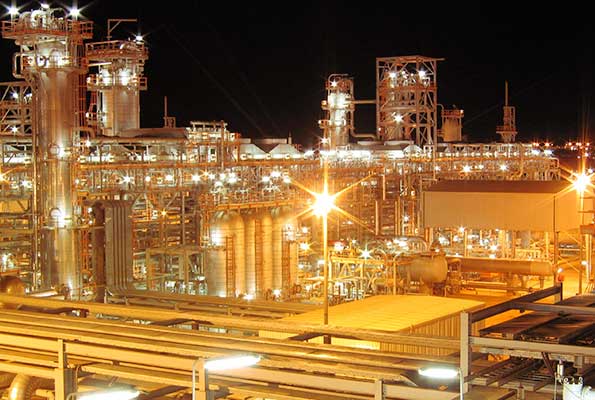Algeria, a North African nation rich in petroleum and natural gas reserves, has long been dependent on hydrocarbon exports to keep its economy running. Over the years, variations in global pricing for these commodities have posed challenges to their economic stability.
However, in recent times, the country has taken significant strides to diversify its economy and reduce reliance on hydrocarbons. The transition to non-hydrocarbon sectors has been bolstered by recovering agricultural output, strong private consumption, and steady growth trends. As a result, Algeria’s economic landscape has shown resilience and growth, as evidenced by a 3.2% increase in GDP in 2022.
Despite challenges posed by inflation and unpredictable weather conditions affecting agriculture, the nation’s determination to bolster the private sector and embrace reforms indicates a positive trajectory for economic diversification and sustainable growth.
Additionally, Algeria’s re-emergence on the international stage fueled by its energy potential and shifting global alliances, further strengthens its position as a regional force to be reckoned with. As the country navigates these intricate dynamics, the path to greater economic stability and influence on the world stage seems increasingly promising.
Petroleum and natural gas exports from Algeria account for more than one-third of the nation’s GDP. The economy was mostly focused on agriculture and complimented France’s economy until 1962. Since then, the most significant activity has been the extraction and production of hydrocarbons, which has sped up industrialization.
In the first two decades following independence, the Algerian government established a centrally planned economy inside a state socialist framework, nationalizing important businesses and putting multiyear economic plans into place.
However, since the 1980s, the emphasis has been on privatization, and Algeria’s socialist course has been substantially modified.
While food production has significantly decreased from self-sufficiency levels, living standards have increased to those of a country with intermediate levels of development.
According to the most recent ‘Algeria Economic Update’ from the World Bank, Algeria’s economy continued to grow in 2022. In 2022, non-hydrocarbon economic activity grew at a faster rate because of recovering agricultural output and strong private consumption expansion. Cross-regional growth trends seem to be continuing into the first quarter of 2023. With strong export levels, a quick buildup of foreign reserves and a reduction in the budget deficit, the rise in natural gas export prices has helped counteract the decline in oil prices.
In 2022, Algeria’s GDP growth reached 3.2%, according to the research. When compared to 2021, the growth of non-hydrocarbon sectors increased by 4.3% as opposed to 2.3%. By 2022, the current account surplus had grown to 9.5% of GDP, resulting in foreign exchange reserves of USD 61.7 billion, or 15.8 months’ worth of imports.
To control inflation, the government has turned to monetary and exchange rate policies. Public spending has also increased to strengthen consumer purchasing power.
The road ahead
Despite the negative effects of low rainfall on agricultural production, growth in 2023 is anticipated to be primarily driven by non-hydrocarbon industries.
The current account balance would be reduced but would still be positive due to the projected decline in hydrocarbon export prices.
According to Kamel Braham, the World Bank’s Resident Representative in Algeria, “Despite encouraging recent macroeconomic developments, Algeria’s economic prospects remain vulnerable to volatile oil prices, underscoring the importance of the continued implementation of reforms to enable the private sector to become the driver of sustainable growth and economic diversification.”
The steady improvement in the trade balance and the building of foreign exchange reserves have increased Algeria’s economy’s resistance to shocks from the outside, but macroeconomic equilibrium remains highly susceptible to changes in oil prices in an environment of enormous global uncertainty.
“The country’s economic activity is dynamic, but the growth prediction for 2023 has been impacted by lower oil production and the impact of poor rainfall on the agriculture sector,” Cyril Desponts, the Algerian country economist for the World Bank, continued, “However, the continuous rise in gas export prices supports more upbeat estimates for the trade balance, foreign reserves, budget deficit, and public debt than previously envisaged.”
Algeria now also aspires to revitalize its status as a regional force after years of self-imposed exile from international affairs under the direction of elderly former President Abdelaziz Bouteflika.
However, it is making a comeback as tensions with its neighbouring countries are at an all-time high. Algeria’s policy issues are getting worse due to the Ukraine war, as the country is facing the heat to reevaluate the composition of its security alliances. However, the fallout has also improved Algeria’s status as a source of energy that can assist cover the gas gap as nations turn away from Russia. The country’s re-emergence on the international stage has been sparked by this energy prospect and the demand for new security partners in the wake of Russia’s deterioration.
Moreover, the Islamic country is slowly moving away from its former colonizer and major trading partner France. It is also increasing strategic ties with China, thus alarming some in the European Union and the United States.



